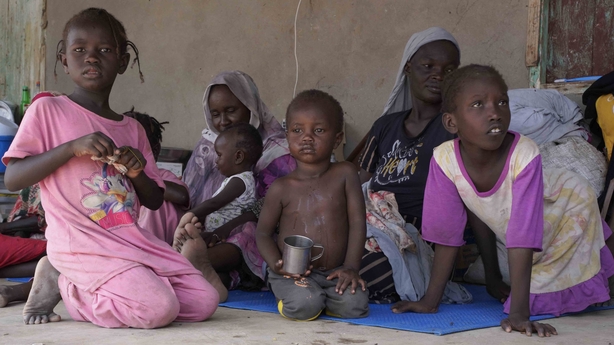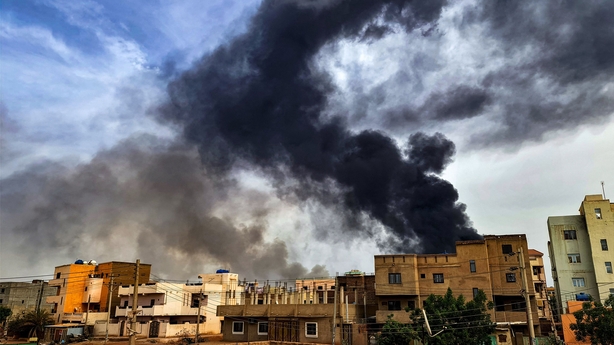Clashes flared in parts of Sudan as the war ground past one hundred days, with mediation attempts by regional and international powers failed to find a path out of an increasingly intractable conflict.
More than 3m people have been uprooted, including more than 700,000 who have fled to neighbouring countries.
The health ministry has confirmed that well over 1,100 people have been killed, but many observers and some government officials believe that the actual number could be much higher.
Fighting erupted on 15 April between Sudan's army chief Abdel Fattah al-Burhan and his former deputy Mohamed Hamdan Daglo who commands the powerful paramilitary Rapid Support Forces (RSF).
Both men had headed a joint council since the ouster of former President Omar al-Bashir in 2019, but then clashed over plans for a transition to democracy.
The army maintains superiority in air and artillery firepower, while the RSF dominates on the ground in the capital, Khartoum, where infrastructure and government have fallen apart, with residents accusing troops of looting.
Over the weekend, the RSF moved into villages directly south of the city, where the army conducted air strikes against them, according to witnesses.

Darfur
Fighting has also spread westwards to the fragile Darfur region, with increasing fears that the RSF and Arab militias are engaged in ethnic cleansing, particularly in the west, prompting hundreds of thousands of non-Arabs to flee to Chad.
In one of the country's largest cities, Nyala, the capital of South Darfur, at least 20 people have been killed as clashes rage in residential areas, medical sources said. The United Nations reports that 5,000 families have been displaced, and residents have reported looting of key facilities.
"Bullets are flying into homes. We are terrified and no one is protecting us," said 35-year-old Salah Abdallah.

The conflict has also reached the south, where the rebel SPLM-N group has joined the fray in a bid to gain territory.
Late on Sunday, the Sudanese army said nine people died, including four military personnel, when a civilian Antonov plane crashed due to a technical failure at Port Sudan airport in the east of the country. A young girl survived the accident, the army added in a statement.
While the two warring sides have shown openness towards mediation efforts led by regional and international actors, none has resulted in a sustained ceasefire.
Both sides have sent delegations to attempt to re-start talks in Jeddah that have yielded often-violated ceasefires.
But the Sudanese foreign minister said on Friday that indirect talks had not begun seriously.
Civilian political groups as well as the RSF have accused the army of turning a blind eye to appearances by wanted Bashir loyalists in recent days.
The Forces of Freedom and Change, the main civilian coalition, said on Sunday it was holding meeting in Egypt, which offered itself as a mediator in the conflict.

